Sunday Reflections: Wrestling with A Birthday Cake for George Washington as a Mother and a Librarian
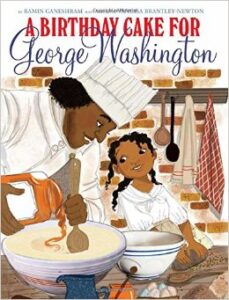 Chances are you are not unaware of the controversy surrounding the book A Birthday Cake for George Washington, which was recently recalled by Scholastic Publishers. If you need some context, you can begin here, here and here. If you Google, and I recommend that you do, you will find a plethora of posts presenting many different opinions and points of view on this title. Although this book does not necessarily fall under the purview of our umbrella here at TLT, I have decided to share some of the thoughts I have been having about the discussion because I am the mother of a small child and a librarian.
Chances are you are not unaware of the controversy surrounding the book A Birthday Cake for George Washington, which was recently recalled by Scholastic Publishers. If you need some context, you can begin here, here and here. If you Google, and I recommend that you do, you will find a plethora of posts presenting many different opinions and points of view on this title. Although this book does not necessarily fall under the purview of our umbrella here at TLT, I have decided to share some of the thoughts I have been having about the discussion because I am the mother of a small child and a librarian.
The basics in case you are unfamiliar: Scholastic published the book A Birthday Cake for George Washington which many people are calling a “happy slave narrative” in that it whitewashes the history of slavery by presenting us with a story about a slave, Hercules, serving as George Washington’s chef. It presents us with this story that suggests that Hercules had it better than many other slaves and was honored to have this position of higher respect, although it does go on to note in an end note that Hercules did eventually runaway, I believe ironically on George Washington’s birthday.
ADVERTISEMENT
ADVERTISEMENT
A Happy Slave Narrative Diminishes the Profound Impact of Slavery
As people we often put stories into a personal context to help understand their meaning, and this is what I keep going to. You see, the year I was in the 8th grade, I was repeatedly abused by someone. That abuse was traumatizing and horrifying and it colored everything that happened that year; it shaped who I was and who I was to become. When not immediately in the abusive situation, I worried and stressed about when it would happen again. I lived in a constant state of anxiety and stress and fear.
Were there moments of happiness during my 8th grade year? Yes, there were. But if someone was going to write my life narrative I would not want them to depict my 8th grade year as a happy year, or to even highlight those happy moments, because that is not the truth of my story. Also, I wouldn’t want them to let me abuser so easily off the hook. The events of those years shaped who I am, they changed the course of my life, and they caused me intense struggles at times with anxiety, depression, self esteem and physical intimacy. To suggest otherwise is not only dishonest, but it does a tremendous disservice to me and all victims of abuse.
And what I went through during that year doesn’t even compare to slavery. For centuries in human history and yes, American history, black people were considered not fully human and were owned by other people. Slave owners dictated every moment of their life: when they could sleep, where they could be, what they could do, what, when and how much they could eat . . . and they often used physical violence and emotional manipulation to make all of this happen.
Were there “good” slave owners? Um, I guess there were less abusive slave owners. But slavery in itself is both immoral and unconscionable, so even if you are doing it better than others, it’s still an evil act in and of itself. A slave owner or slavery supporter is suggesting that one human being has the right to own and deny the basic humanity of a fellow human being. There is no sugar coating that. Even in the best of situations, it is still evil.
Contradictory Messages and the Cognitive Development of Early Childhood
As a parent, I’m a big advocate for teaching children self-autonomy. I believe this is a strong, solid foundation to help kids learn that they and they alone have the rights to their body and that this help prevent childhood sexual abuse. Self autonomy and mutual respect is the cornerstone of teaching consent. I don’t force my child to hug anyone, not even me. And the corollary to this is that we must respect each other: You demand respect for your body, but you must also give others that same respect for the bodies of others. I remind my child constantly that they can’t touch another person without their permission. Respecting others is, I believe, a foundational concept to teaching kids basic human rights, both theirs and the rights of others.
To me, anything that might suggest that slavery was in any way okay, or that there were good slave owners, or the idea of a happy slave, undermines our attempts as parents and educators to teach children the basic concepts of basic human rights, basic respect for others, and self-autonomy. It’s also why as a parent I have chosen never to hit my child why saying, “we don’t hit others.” Young children don’t have the cognitive or emotional skills to understand nuance, what they see is a conflicting message which negates what you are trying to teach.
There’s also a trust issue involved. If children can’t trust the adults in their life to teach them honest truths, then how do they develop any meaningful trust with either the adults in their life or the concept of education itself. How do we teach children that slavery is bad while showing them smiling slaves? And how do they trust us to teach them if they feel we are sending them confusing or outright dishonest messages? And once trust in education is broken, just as with any trust, it can be so hard to regain.
Unlearning Later What We Learned Wrong the First Time
I happen to be the parent of a 7-year-old. I spend a lot of time having to teach her the truth about things she hears, primarily from peers, throughout the course of her day. Knowledge is about building blocks. We learn a concept or an idea and they we build on it, or expand it. For example, when Piaget discusses childhood stages he talks about accommodation and assimilation. Very young children learn the word puppy and then, when they see a new furry animal, they call it a puppy; they put it into a box they already have a label for. Over time, as their cognitive skills grow, they begin to understand that not all furry animals are puppies and begin putting these different animals into more and more accurate boxes: puppy, kitty, bear.
I think of it also in terms of math. Each year in math you learn harder math skills and your ability to be successful at them can be greatly impacted by how successfully you learned the correct math skills in the year before. If somewhere along the line you learn something incorrectly, it can be harder in more advanced stages because you misunderstand a fundamental at a lower stage.
Now imagine trying to teach high school and college age students about the truth of American history and slavery when they have been taught at an earlier age the idea of the happy slave and good slave owner. As their instructor tries to teach the true horrors of slavery they are countering this lessons with arguments of “but there were good slave owners and happy slaves.” They can’t dismantle these constructs learned early in childhood enough to understand the truth behind slavery.
Grappling with the idea of slavery is hard. Acknowledging our history means that we have to admit a lot of horrible things about who we really are as a nation and the human capacity for evil. But being honest about slavery is important because we don’t get to rewrite history or downplay the horrors of our history so that we can feel comfortable today. If by definition slavery is evil, and I believe that it is, than we owe it to ourselves, to our children, and to our future to be honest about that evil.
Honoring the Dignity of ALL the Children in Our Midst
My children are white, which means they come into this world without having to understand the reality of racism. And whether we like it or not, racism is still a very real thing that we must grapple with as humans. When my neighborhood was canvased by the KKK a little over a year ago, my first thought was not about my child, but about the little girl down the street, her friend. I couldn’t imagine what it would be like for this little black girl to walk outside and find these flyers everywhere, how much it would hurt her and cause her to fear living in her own neighborhood, in her own home. And I couldn’t imagine as a parent what it might be like to have your child come in and ask you what this flyer meant. And although as the mother to two little girls I have had to fight a lot of sexism and sexist messages, I have not and will not have to teach my child about racism in the same way that the parents of a child of color will.
But as librarians and educators, people entrusted by our communities to nurture and raise their children, we have a responsibility to not only educate, but to respect and value all the children in our communities. We owe it to our children with disabilities to provide our communities with accurate representations of life with various challenges. We owe our children with mental health issues accurate representations of mental health issues without harmful stereotypes. And we owe it to our children from various ethnic backgrounds to provide accurate representations of life both past and present for various groups. It’s not just about representation, because yes of course children deserve to see themselves reflected in the media they consume. It’s also about being honest about history so that we can start breaking down those harmful stereotypes and creating environments where marginalized groups are respected and cared for by the whole community. I teach my children the dignity and basic humanity of others by making sure they read stories that open their world view, expand their knowledge of life outside their little bubble. I believe this is one of the primary purposes of literature, books are both windows and mirrors. And if we want our children to grow up healthy and happy and respecting both themselves and others, then those windows and mirrors have to be honest.
So What About Censorship
I am not a fan of censorship; though by definition this is not censorship. Censorship is when the government intercedes and forbids the publication or distribution of information. This is a product producer making an informed market decision based on consumer feedback. It’s no different then when someone sees that Abercrombie or American Apparel has produced a sexist or rape culture t-shirt and they get vocal about it and the distributor decides to pull the t-shirt. That’s how the free market works. It is also, I would argue, how Democracy works. The public spoke up, they made a public vote with their voices, and the creator of the content, Scholastic, decided to pull their book. I think it was the right decision.
Content creators do have a responsibility for their message. In my opinion, the message of the happy slave – especially directed to young children who are just learning basic foundational concepts like respect and human rights – is not a responsible message. But more than that, it is a message that suggests that the publisher isn’t aware of basic child development and how negligent this message is at this critical time period of cognitive development. The book not only hurts the African American community, but in my opinion it hurts the reputation of the publisher who has branded itself as someone who is an authority on child development and a trusted source for producing developmentally appropriate books for kids. In my opinion, recalling the book was a smart market decision for several reasons, one of which is that it helps to restore the public trust in this very image that Scholastic has worked so hard to cultivate. Plus, alienating a part of your consumer base is just a bad economic practice, which is why I can’t figure out why Marvel and Disney continue to act like girls don’t care about or have an interest in the superhero franchise.
I do understand why libraries that have already purchased and added the books to their library shelves have a harder time considering withdrawing the book in question from their collection. As a librarian and advocate for intellectual freedom, I am woefully hesitant to remove any book for any reason. And trust me, I have been asked to many times. Part of the reason we as librarians are so hesitant to remove items from the collection because once you start, it’s so hard to know where to draw the line. If I withdraw a book that the Native American community declares is harmful to the native population, then do I also have to remove all the GLBTQ books that the conservative population declares are harmful to the conservative community? Why is one argument valid and the other is not? Those are hard arguments to make when the people standing before you are arguing from a place of sincere belief and asking that you respect those beliefs.
In the case of A Birthday Cake for George Washington, I do think libraries can remove the book on the principle that it was recalled by the publisher of the book. If we had some other item in our libraries, say chairs, that were recalled by the seller of those items for safety reasons, we wouldn’t hesitate to remove the chairs and in fact might be considered financially liable for any injury should we fail to do so. So what type of responsibility do we have when a publisher withdraws a book? In my 22 years as a YA librarian, this is new territory for me and it is certainly a question I am wrestling with (although for the record, the library that I currently work in does not own the title in question and I am not in charge of that collection).
So What Can We Do Right Now?
One thing we should all definitely do it to take a moment right now to analyze our collections. Do we have good diversity happening in our collections? If not, we should work on orders right this moment to help fill any collection gaps that we have. And we should turn to reliable sources to fill those gaps. Make sure that you are purchasing titles with POC characters written by POC authors, because we need diversity at all levels. Our kid readers need to know that they can grow up to be writers as well as readers.
ADVERTISEMENT
ADVERTISEMENT
Consider your sources and make sure you are buying well reviewed titles not just from the professional journals, but from members of the community that is represented in the work. For example, look for reviews of literature with Latino characters from the Latino community and see if they mention anything about harmful stereotypes or cultural inaccuracies.
Don’t just put the books on the shelves, but put them on display. But not just in Diversity Displays, just in displays in general. For example, if you do a display on dystopian titles, make sure you have dystopian titles by POC authors and featuring POC main characters. If you go to do say a mystery display and find you don’t have any diverse titles to add, then fill those holes.
Be active in the library community. Listen to the conversations others are having. Be open to changing your mind. But also be willing to advocate: for kids, for books, for libraries.
As I said at the beginning, this is a conversation I have been paying attention to, as a librarian and as a mother. I have strong opinions on parts of it and am still wrestling with questions for other parts of it. But as a human and as a person who believes in the power of story to shape a mind, I do think what stories we tell and how we tell them are important. I believe that words matter and that stories can inform who we are and what we believe. That’s why this conversation matters.
Please Note: These are my opinions alone and do not represent School Library Journal, the library where I work, or any other member of TLT.
Filed under: Sunday Reflections
About Karen Jensen, MLS
Karen Jensen has been a Teen Services Librarian for almost 30 years. She created TLT in 2011 and is the co-editor of The Whole Library Handbook: Teen Services with Heather Booth (ALA Editions, 2014).
ADVERTISEMENT
ADVERTISEMENT
SLJ Blog Network
The Moral Dilemma of THE MONSTER AT THE END OF THIS BOOK
Cover Reveal and Q&A: The One and Only Googoosh with Azadeh Westergaard
K is in Trouble | Review
Fighting Public School Book Bans with the Civil Rights Act
ADVERTISEMENT



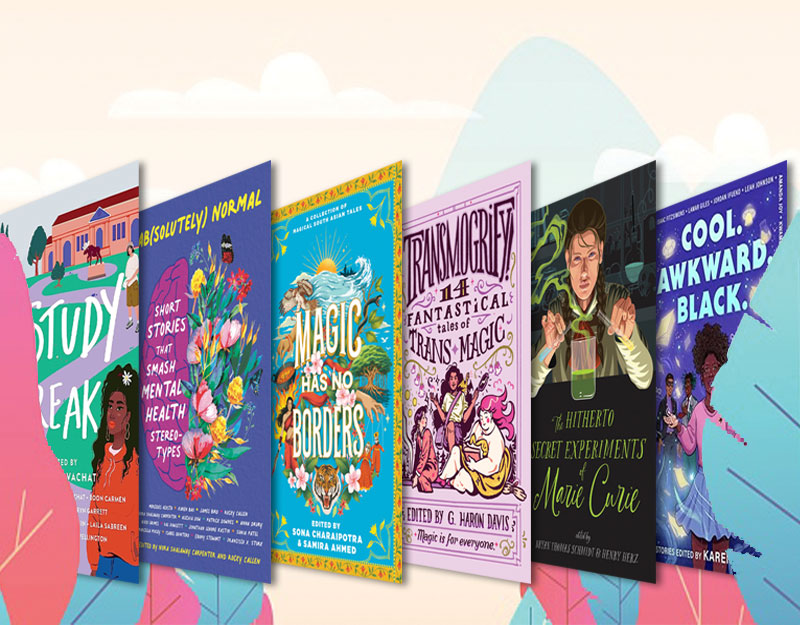
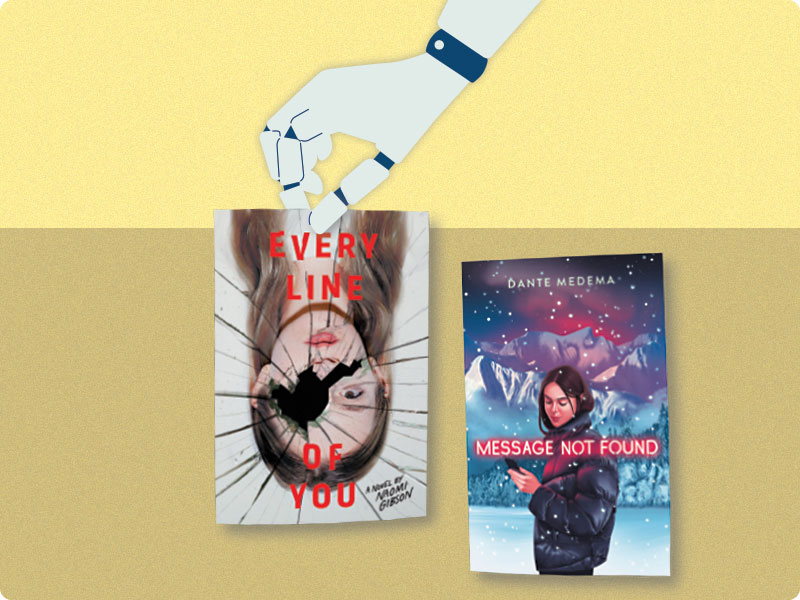
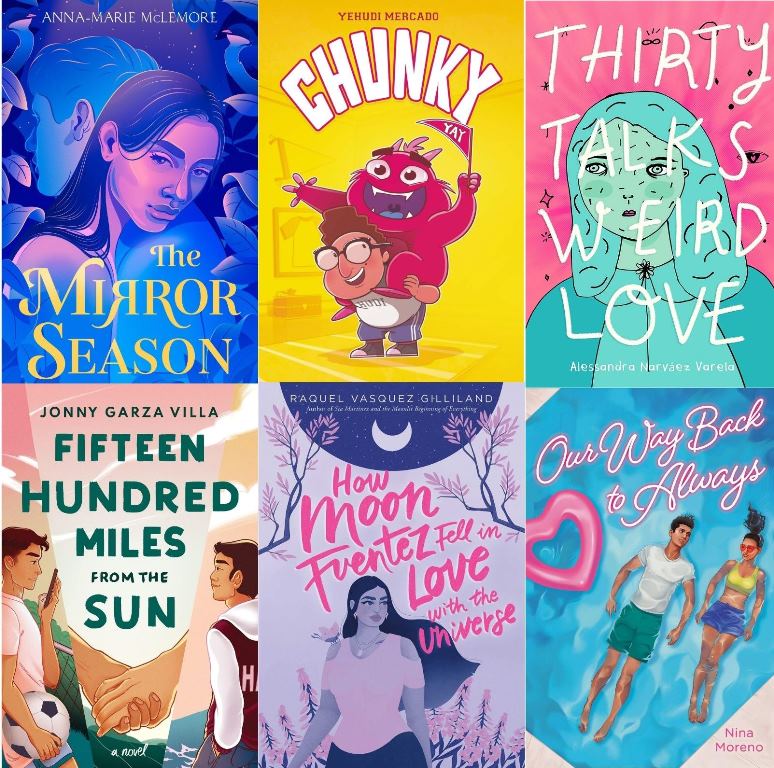
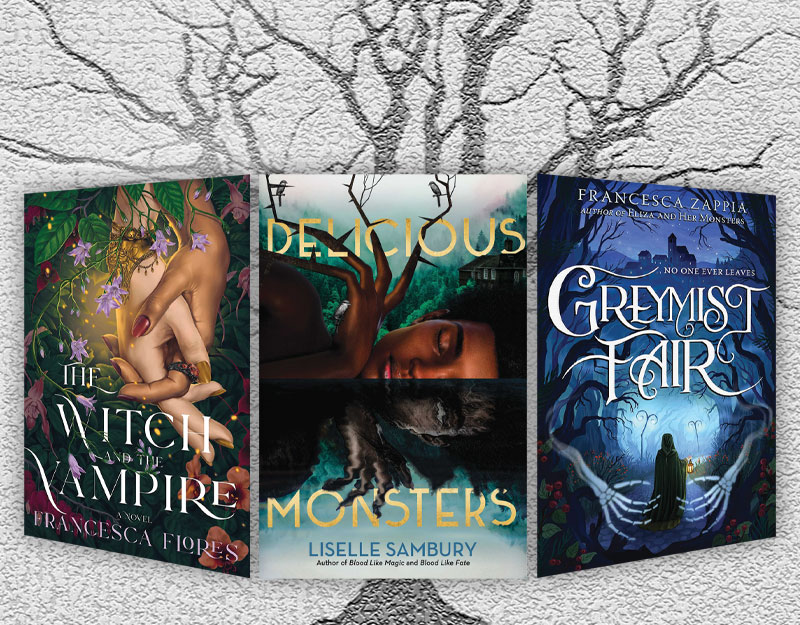
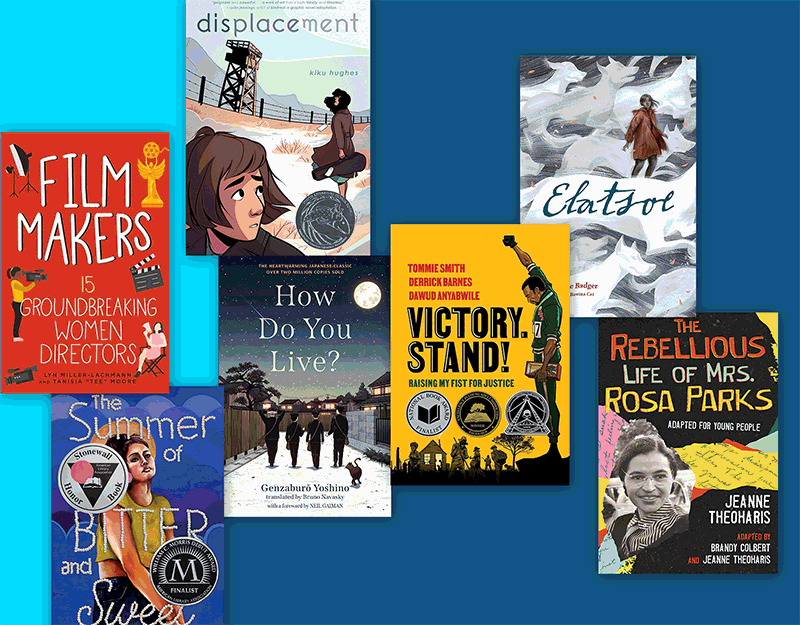
Thank you for this post. It is calm and level headed in an emotionally charged subject. Being fairly new to librarianship (it is not my educational background), I was really struggling with the censorship angle. We don’t have the book, nor is it my collection to have a say in, but the principles at work were confusing and stressful. Your approach seems reasonable and logical and I am glad you went ahead and shared your thoughts. It has been a learning experience!
Thank you for reading 🙂
Karen